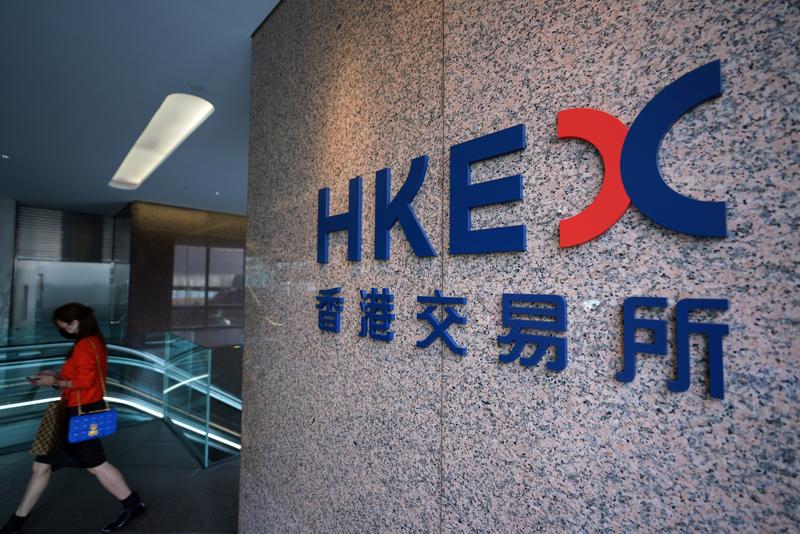January 6, 2022
As a global offshore renminbi business hub, Hong Kong is a key location for expanding use of the currency in global trade settlement, cross-border investment and national reserves, according to officials and experts.
They added that the integration of renminbi assets with the global financial system has been accelerated, along with the global economic recovery and more opening-up measures introduced by the central authorities.
Hong Kong’s leading position as an international financial center is well recognized by international investors. The Chinese mainland has high hopes for the development of Hong Kong’s financial industry.
Peter Lee Ka-kit, chairman of the One Country Two Systems Research Institute
In November, Hong Kong Financial Secretary Paul Chan Mo-po said at the SFC (Securities and Futures Commission of Hong Kong) Regulatory Forum 2021, “Our position as the world’s largest offshore renminbi business hub will grow with expansion of the two-way cross-boundary fund flow.
“We account for the largest pool of renminbi liquidity outside the Chinese mainland, and about 70 percent of offshore renminbi payments are handled by banks here in Hong Kong.”
He added that the city’s financial regulators would continue to expand channels for the two-way flow of renminbi funds.
According to Hong Kong Exchange and Clearing, or HKEX, an active offshore renminbi market is crucial for promoting the currency worldwide. Hong Kong’s advantageous position could be used effectively to promote the offshore renminbi liquidity pool and increased use of the RMB in the offshore market.
Peter Lee Ka-kit, chairman of the One Country Two Systems Research Institute, said: “Hong Kong’s leading position as an international financial center is well recognized by international investors. The Chinese mainland has high hopes for the development of Hong Kong’s financial industry.”
These factors would prompt the city to further contribute to the nation by reforming and innovating the financial industry framework, enhancing financial market quality, and cultivating new competitive edges, Lee added.

Leading banks are based in the Admiralty and Central districts of Hong Kong. (MAYOKYO / FOR CHINA DAILY)
According to an HKEX research report published in March, the essential elements of an active offshore center include a sizable liquidity pool, an abundant supply of investment products for risk management, and sound infrastructure and policy support for the development of offshore assets trading, in which Hong Kong has inherent advantages.
The city handles about 75 percent of offshore renminbi payments, according to the Society for Worldwide Interbank Financial Telecommunication, or SWIFT, a messaging network used by global financial institutions. Hong Kong has the most RMB deposits of all offshore markets operating in the currency, amounting to 834.9 billion yuan ($133.9 billion) by the end of October, about half the global total, according to the Hong Kong Monetary Authority, or HKMA.
Eddie Yue Wai-man, HKMA chief executive, said the authority aims to enhance financial platforms’ links with the mainland and promote use of the RMB as an investment currency to strengthen the functions of the city’s financial market as stipulated in the 14th Five-Year Plan (2021-25).
In March, the 13th National People’s Congress approved the outline for the 14th Five-Year Plan, which supports Hong Kong strengthening its status as a global offshore renminbi business hub, an international asset management center and a risk management base.
In September, Southbound Bond Connect and Cross-boundary Wealth Management Connect were launched, underscoring the role of Hong Kong’s financial market in providing a secure and reliable channel and gateway for opening up the nation’s financial market.
Southbound Bond Connect provides mainlanders with a diversified channel to invest in offshore bond assets through Hong Kong, while Wealth Management Connect is the first mutual market access plan specifically designed for individuals in the Guangdong-Hong Kong-Macao Greater Bay Area to conduct cross-border investment.

The Hong Kong Exchange and Clearing headquarters. (ZHANG WEI / CHINA NEWS SERVICE)
Position boosted
Capital market links between Hong Kong and the mainland started in 2014, with the gradual introduction of Shanghai-Hong Kong Stock Connect, Shenzhen-Hong Kong Stock Connect, Mutual Recognition of Funds, ETF Connect and Northbound Bond Connect.
These programs have boosted Hong Kong’s position as an asset management center. Global investors can now access the mainland market to meet the needs of those seeking returns, while mainland investors can tap the vast pool of untapped mainland capital to invest in overseas assets.
Yue said: “About two-thirds of mainland stocks owned by international investors are held through the stock connect programs. On average, some 50 percent to 60 percent of international investors’ turnover in onshore bonds is traded through Bond Connect.”
According to the Global Public Investor 2021 Survey conducted by the Official Monetary and Financial Institutions Forum-a central banking and public investment think tank-renminbi assets have become increasingly popular. This is especially evident among global public investors such as central banks, sovereign funds and public pension funds, as the COVID-19 pandemic has boosted growth of the RMB as a reserve currency.
The survey found that of 850 global public investors, some 30 percent plan to expand their renminbi holdings over the next 12 to 24 months, while 70 percent aim to increase their RMB involvement in the long term.

Screens show the closing prices of Hong Kong stocks on Monday. (CHEN YONGNUO / CHINA NEWS SERVICE)
David Marsh, chairman of the think tank, said, “Although it still lags far behind the US currency, and is still not fully convertible, in some important ways the renminbi has come of age as a reserve asset.”
Amid buoyant demand, the HKMA will also further enhance the competitiveness of Hong Kong’s offshore RMB market in several respects, such as liquidity, product offerings, wider use and market infrastructure.
The renminbi’s journey to internationalization started with the currency being used for cross-border trade settlement and was later expanded to direct investment. The launch of the bond and stock market connect programs in 2014 saw wider use of the currency in cross-border financial investment. Pilot plans on a limited scale, allowing investment in the onshore market to be conducted in RMB, were introduced early in 2020.
Yue said, “In terms of renminbi liquidity, we will work closely with our mainland counterparts to broaden cross-boundary flow and use of the RMB, for example, through the continued expansion and refinement of the bond and stock connect programs as well as Wealth Management Connect.”
He added that the HKMA would also promote development of offshore renminbi-denominated financial products in Hong Kong.
In October, the authorities in Shenzhen, Guangdong province, completed the issuance of 5 billion yuan in offshore multi-tranche renminbi-denominated bonds listed on the Hong Kong Stock Exchange. It was the first time a mainland municipal government bond had been issued outside the mainland.

Visitors tour an exhibition featuring the development of financial technology in Hong Kong. (WU XIAOCHU / XINHUA)
Yue said: “We are also looking to further widen use of the renminbi in capital market transactions, such as promoting RMB stocks. We are looking at this issue with other regulators. Promoting use of the currency in this field would help drive underlying renminbi-denominated foreign exchange, derivatives or financing activities, and enrich the renminbi product space in Hong Kong.”
Yue feels that consideration now needs to be given to ways in which demand from issuers and investors can be driven. He said there is also a need to ensure price convergence and reduce the risk of market fragmentation if there are parallel counters in both the renminbi and the local currency for stocks listed in Hong Kong.
“A working group comprising the SFC, HKMA and HKEX has been formed to conduct a feasibility study and work with the mainland authorities on exploring the inclusion of renminbi counters in southbound trading under Stock Connect. We hope to come up with some practical suggestions in the near future,” Yue said.
In addition to the ambitious 14th Five-Year Plan, Hong Kong can serve the national development goal. The HKMA has pledged to enhance the city’s role as a regional green and sustainable finance hub to channel global investment in support of the nation’s plans to achieve carbon neutrality by 2060.
Yue said: “The HKMA is setting clear rules for the financial industry on risk management and disclosure, such as building climate resilience into the banking system through formulating supervisory requirements and conducting a pilot exercise to test climate risk. It is also committed to mandatory related disclosures, in line with the recommendations of the Financial Stability Board’s Task Force on Climate-related Financial Disclosures, no later than 2025.”

Young engineers discuss robots they produce at a new company in the city. (ZHU HONGBO / FOR CHINA DAILY)
The HKMA has set up the Centre for Green and Sustainable Finance and worked with the World Bank Group’s International Finance Corporation on the Alliance for Green Commercial Banks to support environmental financing initiatives through capacity building and other measures.
The issuance of green bonds in the city will be assisted by the HKMA, promoting awareness and market participation. The monetary authority has also integrated ESG (environmental, social and governance) factors into the Exchange Fund’s investment process, and has targeted issuance of the first batch of retail green bonds.
In November, the Hong Kong government issued $3.75 billion worth of green bonds denominated in the US dollar, the euro and the renminbi, marking the local administration’s first offering of bonds in the euro and RMB. Moreover, it is the first government in Asia to issue green bonds in the euro as long as 20 years.
At the start of last year, the Hong Kong authorities put $2.5 billion worth of green bonds on the market, becoming the first Asian government to issue such bonds denominated in the US dollar as long as 30 years.
It is planned to issue an additional $22.5 billion worth of green bonds over the next five years in different currencies.

